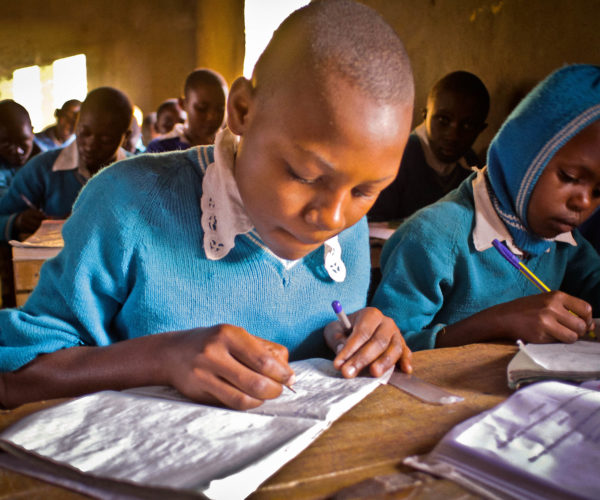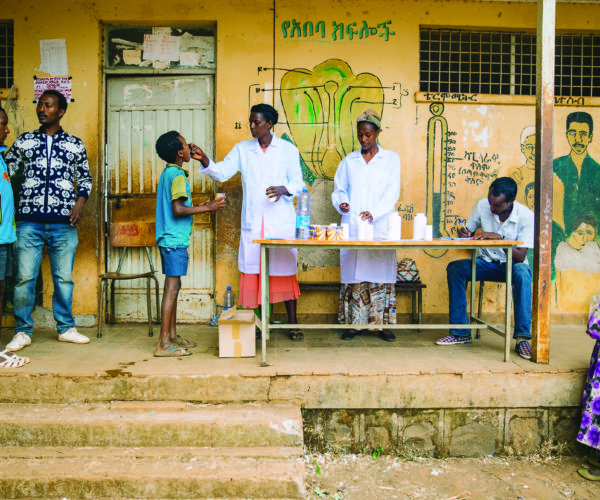Fundación Escuela Nueva-Volvamos a la Gente
September 24, 2018
Transforming teacher-centered education to child-centered participation
Fundación Escuela Nueva is a Colombian education NGO that has been in operation for 30 years. It was initiated by Vicky Colbert to provide access to quality primary education to isolated and rural multigrade schools in Colombia. As the first coordinator for what was then a government-run program, Colbert started the initiative, which impacted national policy and reached more than 20,000 schools by the end of the 1980s. However, due to the vulnerability of innovations to political and administrative changes, Colbert, along with the original team of Escuela Nueva and several ex-Ministers of Education, created Fundación Escuela Nueva-Volvamos a la Gente, a Colombian NGO to ensure the quality of the model in its implementation at the national level and to continue innovating and adapting it to new contexts and populations such as urban marginalized and displaced children.
Colbert knew that to change education at the national level, she needed to influence national policy. Therefore, she built on what already existed and thought in a systemic way. She created strategies to enable replication and scalability, with three key elements: strong visual images to influence attitudinal change in teachers, empirical evidence, and feasibility—technical, political, and financial. Escuela Nueva tested its innovative model in the most isolated schools, where teachers started to become the actors of change. As more teachers gained interest in this approach, Escuela Nueva began to expand. For more significant scale and impact at the national level, Colbert began speaking with the World Bank and the Inter-American Development Bank. In 1989, the World Bank recognized Escuela Nueva as one of the three most important innovations worldwide that had impacted national policy, and provided a loan to universalize primary education. Afterwards, representatives from other countries came to Colombia to learn from Escuela Nueva, and it has been adapted to Guatemala, Brazil, Mexico, Zambia, Vietnam, among other countries.
Through Fundación Escuela Nueva’s work with national governments, more than five million children have been reached. Colbert explains, “The essence of what we do is transform the learning paradigm from teacher-centered education to child-centered participation.” By making small changes in the classroom, Escuela Nueva has increased the quality, efficiency, and sustainability of education. A recent impact evaluation of the Colombian Escuela Nueva in Vietnam, done by the World Bank, has demonstrated significant and important results. However, Colbert still struggles to receive multiyear grants to further the long-term vision of the organization. The majority of the projects funded are short-term, which is not strategic for shifting the education system. “Yes, we can improve the quality of education in countries, but more of the same is not enough. We need a paradigm shift, from teacher-centered to child-centered education. Not new in the philosophy of education, but new to the most disadvantaged and vulnerable schools and children. You need to work with governments because their responsibility is education and to reach impact and coverage, but you need the participation of civil society for quality and sustainability. You need a partner on the ground.”
Back to News


